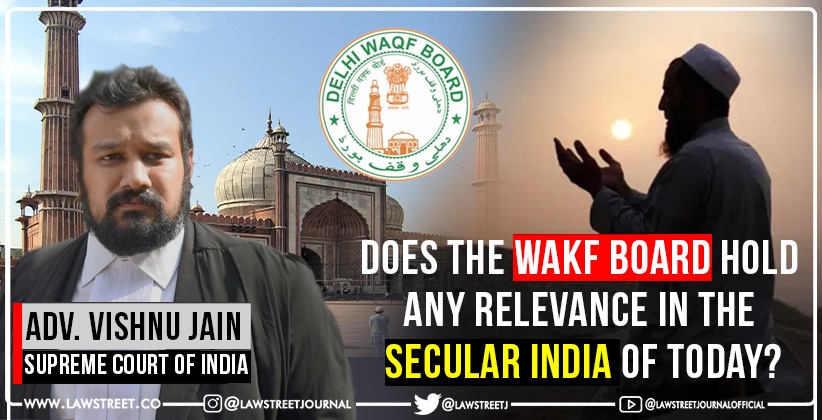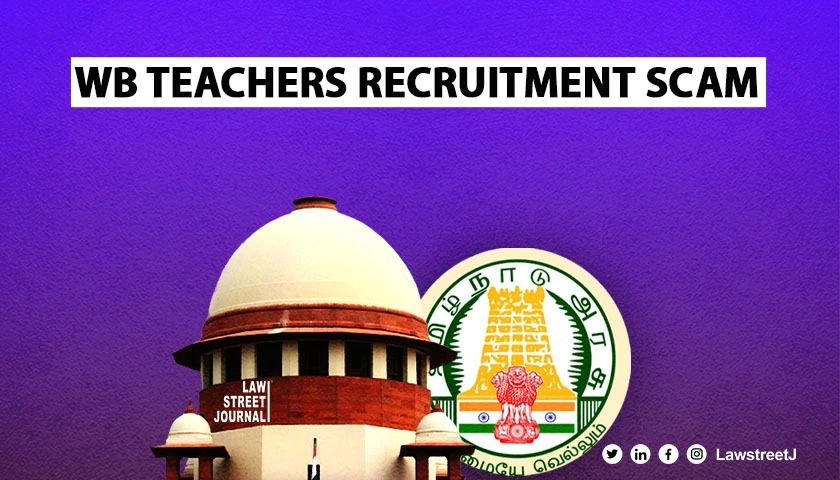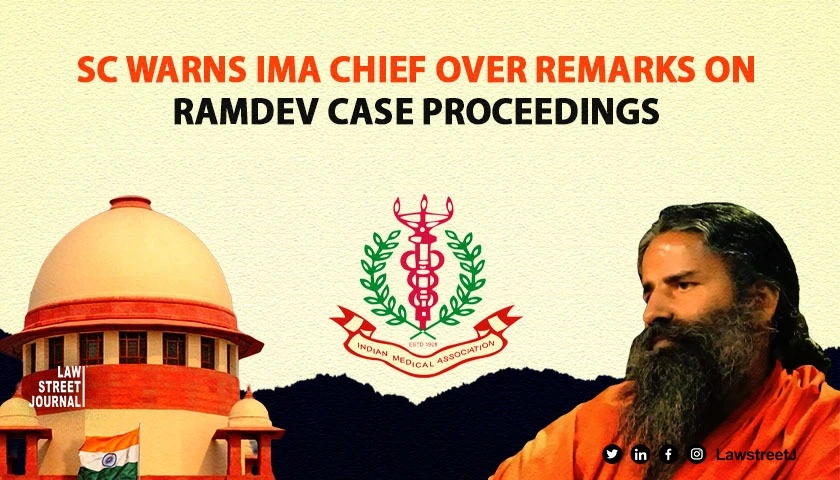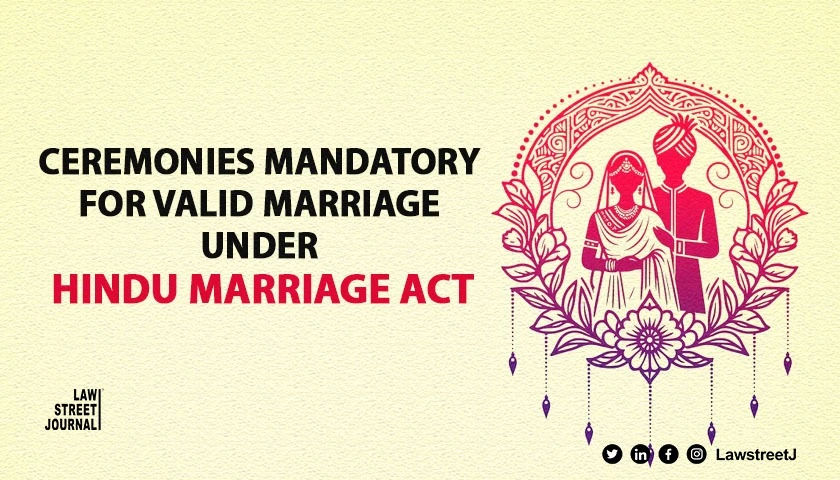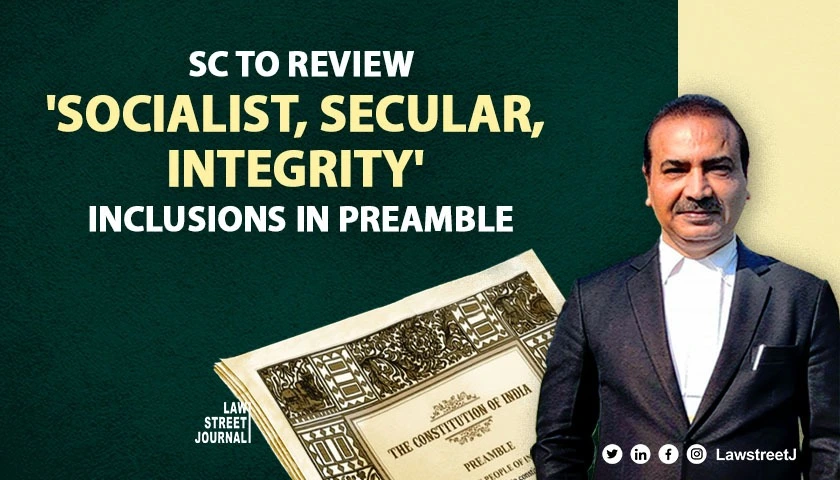New Delhi: In a detailed letter addressed to the Chairman of the Bar Council of India, Advocate Ashwini Upadhyay, practising at the Supreme Court, has put forth a significant proposal advocating for the initiation of a 4-year Bachelor of Law (B.Law) program, mirroring the structure of B.Tech courses, immediately after completing the 12th standard. This proposal seeks to align with the ideals of the New Education Policy (NEP) 2020, which emphasizes flexibility, reduced academic tenure, and practical knowledge.
The letter points out the inefficiencies and redundancies in the current 5-year integrated BA-LLB and BBA-LLB programs, arguing that these courses impose unnecessary burdens on students both financially and academically.
Upadhyay contends that non-law subjects included in the curriculum are irrelevant and extend the duration of the program needlessly, leading to a significant financial strain on students from middle and lower economic backgrounds.
Upadhyay further contends that there is lack of discourse and review by the Bar Council of India regarding the feasibility, rationality, and necessity of the 5-year course structure.
Citing the advantages of a shortened 4-year law degree, Upadhyay emphasizes quicker workforce entry and reduced educational expenses, which could democratize access to legal education, especially for economically disadvantaged students.
The proposal suggests that the current 5-year program does not align with NEP’s vision of education as a great leveller and argues for the immediate removal of non-law subjects from the curriculum.
The letter petition further highlights historical precedents where legal luminaries like Ram Jethmalani and Fali Nariman started their legal practices at younger ages, suggesting that an extended academic program is not a prerequisite for legal proficiency or career success.
Upadhyay critiques the Bar Council of India for its lack of responsiveness to NEP 2020’s call for educational reform, which promotes shorter, more focused higher education courses.
Earlier, law was pursued as a 3-year post-graduate degree after completing graduation in any traditional discipline such as Bachelor of Commerce (B.Com), B.A, or Bachelor of Science (B.Sc) or others.
However, in 1988, the National Law School of India University launched India's first 5-year integrated BA LLB (Hons) programme which could be pursued right after high school.
Since then, various ‘National Law Schools’ mushroomed across India started offering the course - integrated with B.Sc, B.A, B.Com, and B.BA.
The course is now even offered by private law schools.
However, Upadhyay points out that this was not always the case.
“Earlier, there was a 3-year LL.B course after the 12th standard”, in fact referring to the legendary former Law Minister Late Sh. Ram Jethmalani, he says that Jethmalani “started practicing law at the age of 17 years itself”.
Upadhyay also states that the current 5-year law course structure is primarily a financial drain rather than an educational necessity, referencing the National Law University Nagpur’s disproportionate focus on non-law related subjects in its curriculum.
The letter petition urges the Bar Council of India to take swift action to overhaul the legal education framework to ensure it aligns with NEP 2020, advocating for the start of a 4-year B.Law course and the removal of irrelevant subjects and fees during internship periods. He also demands that law colleges not charge fees during internship periods, pointing out the inefficacy of the current internship arrangements.
This reform, Upadhyay argues, is crucial not only for improving the quality and accessibility of legal education but also for ensuring that the legal profession remains attractive to bright, young minds in India.
The petition emphasizes the broader implications of these reforms for making legal education more accessible and affordable, particularly for students from economically weaker sections. By reducing the course duration, the proposal argues that legal education would not only become more efficient but also more attractive to bright, young minds across India, thus fostering a more robust legal profession.
The fee structure for these 5-year law programmes varies anywhere between Rs. 6 lakhs - 20 lakhs, whereas that for the 3-year law programme varies between Rs. 5,000 - Rs. 10 lakhs.
Referring to the financial aspect, Upadhyay points out the inaccessibility of such courses to a majority of the middle and lower income families, and that due to the 5-year course it “takes two more years for a student to become the bread earner in his family.”
Upadhyay decries the mandate of studying B.A with LL.B, stating that “students who have never studied humanities (prior to college) have to study History, Sociology and Economics etc in B.A.LL.B”, also resulting in bright minds choosing not to pursue law as a profession at all.
Taking the example of NLU Nagpur, he argues that, while the college conducts 50 examinations in 05 years for its 5-year degree students, “out of these only 33 are law related examinations and rest 17 irrelevant examinations i.e. (i) Economics, (ii) Sociology, (iii) History, (iv) Political Science, (v) English and other optional subjects.”
Due to this unnecessary structure, students are deprived of specialization in subjects, and introduction to minor laws which are nonetheless necessary - such as Arms Act, NDPS Act, etc.
Thus, he says that “this also shows that irrelevant subjects are (merely) taught to extend the duration of the course and to extract money”.
In light of this, he calls for a 4-year law degree which a law aspirant can begin right after high school, just like B.Tech (Bachelor of Technology) or B.E (Bachelor of Engineering).
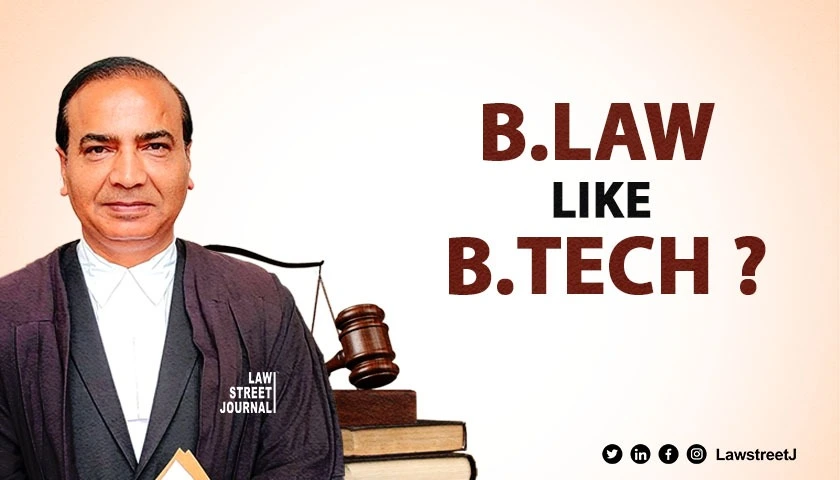


![Himachal Pradesh High Court Grant Bail to a Man Accused of Committing Unnatural Acts with Cow, Said that there is no Criminal History Depicting Pervert Mind [READ ORDER]](/secure/uploads/2020/11/lj_8855_Himachal_Pradesh_High_Court.jpeg)

